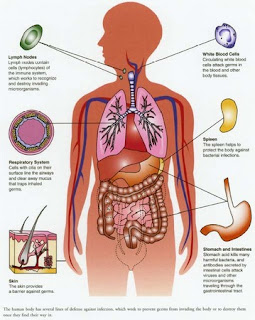What Does It Take to Understand You're at Fault?
 I recently met up with someone in one of my college classes over this weekend. Don't know him, just recognized him and chatted for about a minute. The conversation was about the test that we'd had in the class a day earlier. This guy is always talking about how he's been in college for many years and is still having to retake classes because he's been failing them, and sure enough he tells me about his latest escapade. Apparently he was up all night the night before the test drinking and having sex with some chick, multiple times he tells me, and because of this, most likely did not do very well on the test.
I recently met up with someone in one of my college classes over this weekend. Don't know him, just recognized him and chatted for about a minute. The conversation was about the test that we'd had in the class a day earlier. This guy is always talking about how he's been in college for many years and is still having to retake classes because he's been failing them, and sure enough he tells me about his latest escapade. Apparently he was up all night the night before the test drinking and having sex with some chick, multiple times he tells me, and because of this, most likely did not do very well on the test.You know what the ironic thing about this whole story is? The class is a philosophy class, and what we're studying is Plato, namely Plato's theory of human nature. Now if you don't know, Plato believed that the soul had three parts, the Appetitive, the Spiritual, and Reason. He believed that to lead a good life, a person must control their appetitive and spiritual natures through reason, because reason is the best judge.
This is basically the core of the test we were taking. So here's this guy, with this idea basically staring him in the face, and he still refuses to take heed of it. It doesn't matter if Plato's arguments were sufficient enough, the fact is that with this idea right in his lap, this guy couldn't even overcome his appetitive nature for one night. And hell, it doesn't take Plato to tell you that staying up late before a test is bad for you to know so, but the fact that that is what we had been studying for weeks makes this almost hilarious.
Now am I saying drinking is bad? No. Am I saying that having sex multiple times is bad? Hell no. But something tells me that after so many years in college, having failed classes multiple times and having to retake them, that something should click and tell you that maybe...just maybe, you were doing something wrong?
This only makes me ask the question, what does it take? What does it take for someone to see they might be going wrong somewhere? I even had to ask myself this question and came to a resolution: The scary thing is, that most of the time it takes something big for us to see this, something that shakes our very foundation, something that could break us.
The weightlifter Vasili Alexeyev believed that an injury helps a lifter to analyze and perhaps re-evaluate their training methods: "It seems to me that some of the talented athletes lack one thing-- theyhaven't had an injury. That's right! An injury that will put them out of commission for a year during which time they'll have a chance to weigh every-thing. I, too, would not be where I am if I had not injured my back. Isuffered for a year and a half thinking everything over ... After amisfortune, people pull through and become, if possible, great people -- andsportsmen, in particular. Those who are stronger find their way out and to the top ..."
Quote taken from - http://www.elitefts.com/documents/science_of_winning.htm
This can apply to other facets of life as well though. When do most people have a question of faith? A lot of times it is when a loved one has passed. This is because we are thrown into a loop, taken out from our comfort zone and have to attempt to understand something we thought we knew.
The tough lessons of life are a blessing and a curse. They beat you down to within an inch of your life and its up to you to build yourself back up. If you achieve this, though, you will be immensely more wise, at least until the next wave hits.
Sometimes it takes a slap in the face for you to find out you don't like being slapped in the face.



Comments